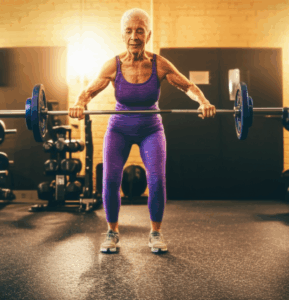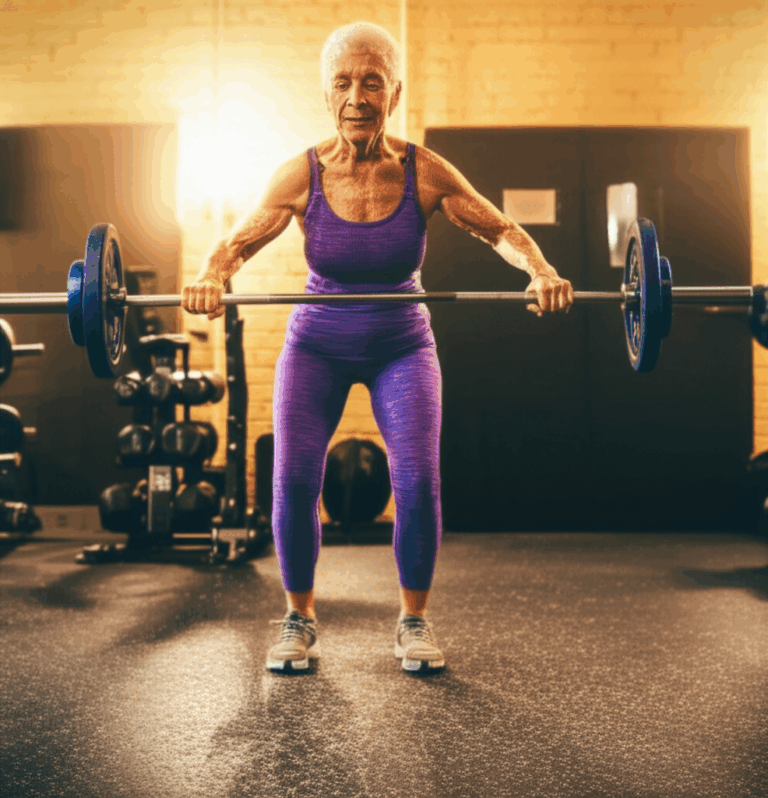Imagine defying the conventional narrative of aging, not by slowing down, but by picking up a barbell and demonstrating incredible strength. This is the inspiring reality of Roshni Devi Sangwan, affectionately known across social media as the “Weight Lifter Mummy,” who, at 70, is showcasing how a dedicated fitness regimen coupled with a disciplined, healthy diet can lead to remarkable vitality in later life. Her journey shatters myths about age-related limitations and highlights the profound impact of strategic nutrition on physical longevity.
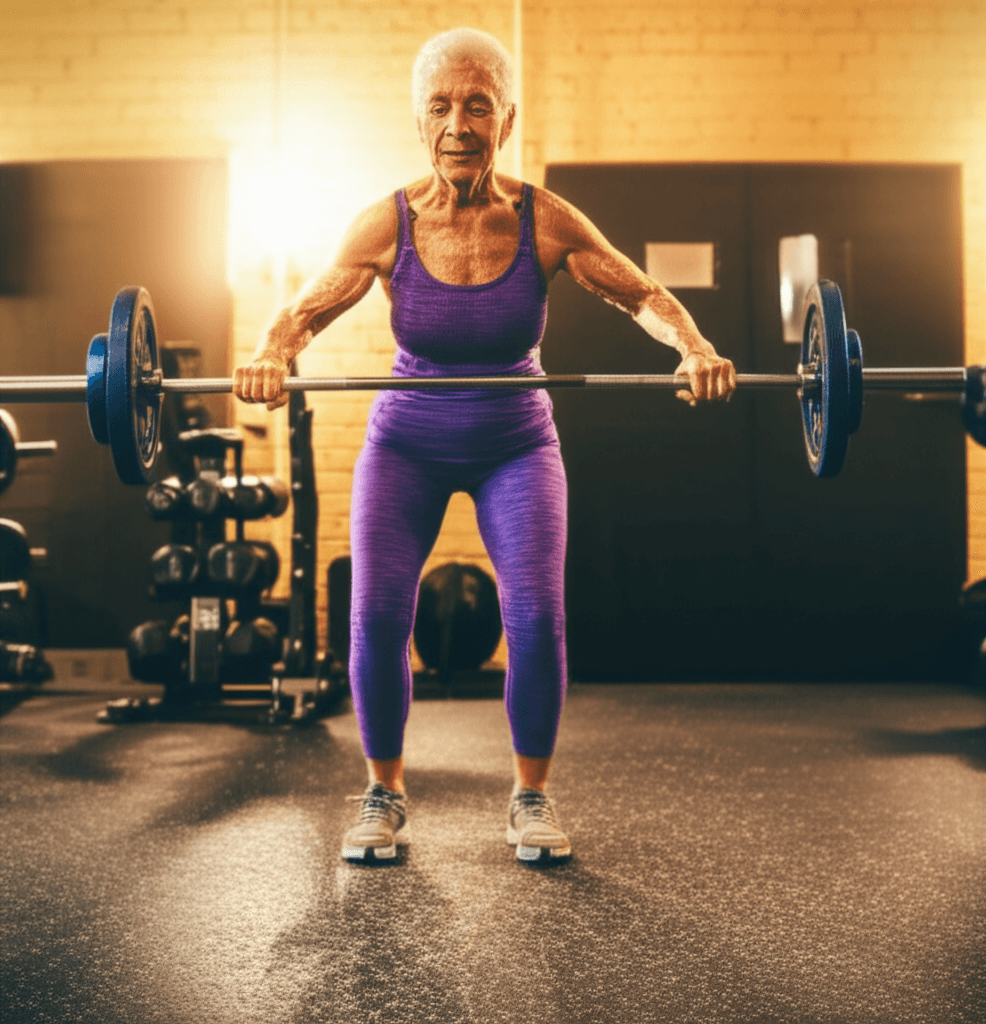
Who is the ‘Weightlifter Mummy’? A Beacon of Senior Fitness
Roshni Devi Sangwan, a resident of Bhiwani, Haryana, began her weightlifting journey at the remarkable age of 68 in June 2023, after experiencing knee pain. Her dedication quickly transformed her, allowing her to deadlift an impressive 97 kg using a trap bar, perform 80 kg conventional deadlifts, squat 50 kg, leg press 120 kg, and hold a plank for four minutes. Her story, shared widely through social media, has made her a powerful symbol that age truly is just a number when it comes to maintaining health and vitality.
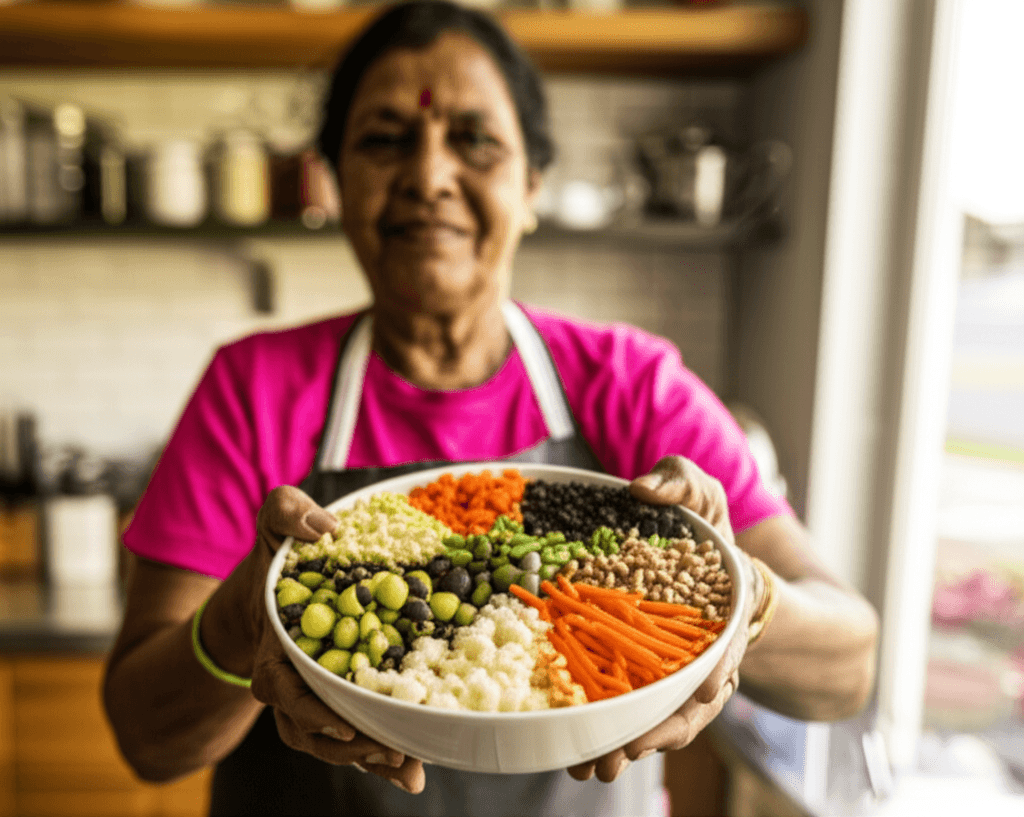
A Vegetarian Powerhouse Diet: Roshni Devi’s Fuel for Strength
What fuels such an astonishing level of physical activity in her 70s? Roshni Devi attributes her sustained energy and strength to a simple, yet highly effective, protein-rich vegetarian diet. Her daily meal plan is a testament to how plant-based foods can provide ample nutrition for rigorous training.
Her typical day begins with a power-packed drink made by blending a small serving of oats with ten almonds and a handful of raisins. For her midday meal, especially in summer, she opts for a modest portion of rice, paired with dal (lentils), a fresh salad, and curd (yogurt). This combination provides a balanced intake of carbohydrates, proteins, and essential vitamins. In the evening, she prepares a savory moong dal chilla (a type of pancake made from split yellow lentils), incorporating paneer (cottage cheese) and a hint of green chili. She rounds out her evening nutrition with a glass of milk. Roshni Devi emphasizes her strict adherence to this diet, stating, “I eat this. I don’t eat anything else.”
This disciplined approach highlights key principles of nutrition that are crucial for active older adults, whether following a vegetarian diet like Roshni Devi or incorporating animal proteins.
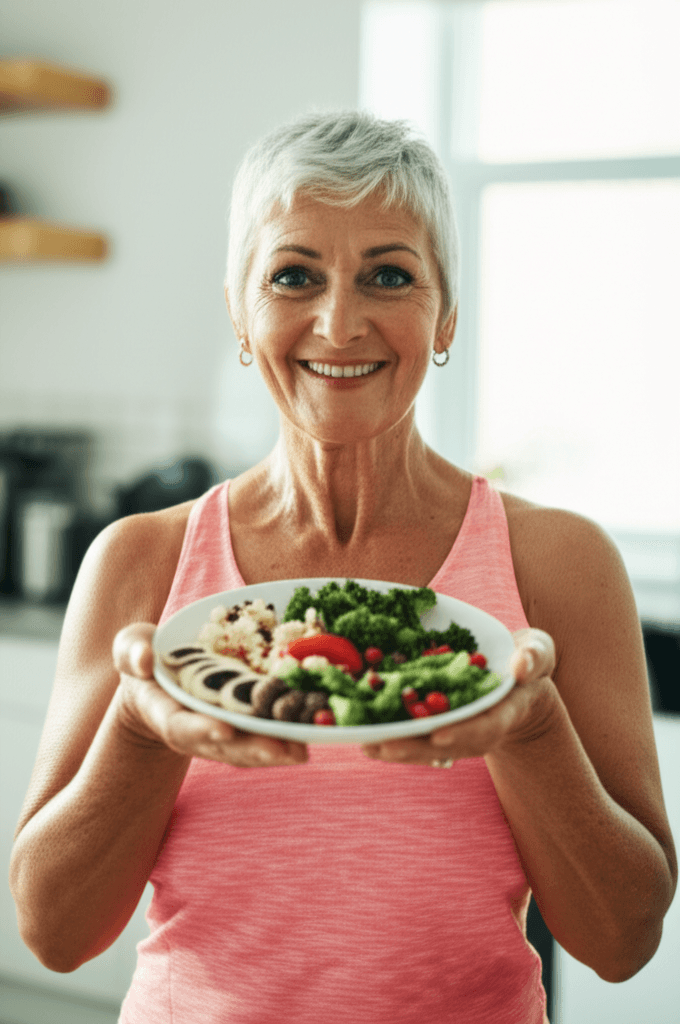
The Science of Staying Strong: Nutritional Needs for Active Seniors
As we age, our bodies undergo physiological changes that necessitate special attention to diet, particularly for those who remain physically active. Muscle mass and strength naturally decline, a condition known as sarcopenia, which can begin as early as the 30s and 40s and affects a significant percentage of older adults. However, research shows that targeted nutrition combined with exercise can effectively combat and even reverse this muscle loss.
Prioritizing Protein for Muscle Health and Retention
Protein is arguably the most critical macronutrient for older adults, especially those engaged in strength training. Aging muscles become less responsive to protein’s anabolic (muscle-building) effects, meaning older adults generally need a higher intake compared to their younger counterparts to stimulate muscle protein synthesis and prevent muscle deterioration.
Experts recommend that aging athletes aim for approximately 1.2 to 1.5 grams of protein per kilogram of body weight per day to offset muscle depletion and maintain muscle mass. To maximize benefits, it’s also crucial to distribute protein intake throughout the day, rather than consuming it all in one meal. Aiming for 25-30 grams of protein per meal can help stimulate muscle building and retention.
High-quality protein sources, rich in essential amino acids like leucine, are particularly important. Leucine plays a key role in stimulating muscle protein synthesis.
Excellent sources of high-quality protein include:
- Dairy Products: Milk, yogurt, and cheese, which are rich in leucine.
- Eggs: A complete protein source, high in leucine and other essential nutrients.
- Lean Meats: Chicken, turkey, and fish, which are staples for muscle gain.
- Plant-Based Proteins: Dal (lentils), beans, peas, paneer (cottage cheese), nuts, seeds, and fortified soy products are vital for vegetarians like Roshni Devi.
Carbohydrates for Sustained Energy and Recovery
While protein often takes the spotlight for muscle building, carbohydrates are equally vital for active seniors. They are the body’s primary source of energy, fueling workouts and replenishing glycogen stores depleted during physical activity. As individuals age, it can take longer to replenish these stores and recover.
The lowest recommended carbohydrate intake for athletes is 3 to 5 grams per kg body weight per day, with higher amounts for those engaged in more intense training. Prioritize complex carbohydrates for sustained energy and fiber for digestive health.
Good carbohydrate sources include:
- Whole Grains: Oats, brown rice, whole-wheat bread, and pasta.
- Fruits: Provide essential vitamins, minerals, and natural sugars.
- Vegetables: Rich in antioxidants and various micronutrients that support overall health and muscle function.
Healthy Fats for Overall Well-being and Anti-Inflammation
Fats are an essential part of a balanced diet, providing energy and supporting hormone production. For older adults, particularly active ones, incorporating healthy fats is crucial. While fat recommendations for older and younger adults are similar (around 20-35% of total caloric intake), attention to the type of fat is important.
Omega-3 fatty acids, found in foods like salmon, walnuts, and flaxseeds, are particularly beneficial due to their anti-inflammatory properties. Chronic low-grade inflammation can occur with age, and omega-3s can help combat this, supporting muscle health and overall well-being.
Essential Vitamins and Minerals for Bone and Muscle Health
Several micronutrients play crucial roles in maintaining fitness and preventing age-related decline:
- Vitamin D: Aging decreases the skin’s ability to produce Vitamin D3. Vitamin D is vital for immune and neuromuscular function, cell growth, glucose metabolism, and calcium absorption, which is essential for strong bones and reducing inflammation. Older adults may need to supplement with 1,500-2,000 IUs of Vitamin D3 daily, or at least 800 IUs.
- Calcium: Critical for bone health to prevent osteoporosis and fractures, especially in women. Good sources include dairy products, leafy green vegetables, and fortified foods.
- Vitamin B12: As people age, the absorption of Vitamin B12 can decrease. It’s important for nerve function and red blood cell production. Fortified foods or supplements may be necessary.
- Potassium: Helps manage blood pressure and is found abundantly in fruits, vegetables, and beans.
- Iron: Important for energy and oxygen transport. Red meat is a primary source, but it can also be found in pulses, oily fish, eggs, and green vegetables.
- Creatine: While naturally made in the liver, creatine supplementation, combined with proper dietary strategies and weight training, can lead to additional muscle building, increased strength, and improved functional movement in older adults.
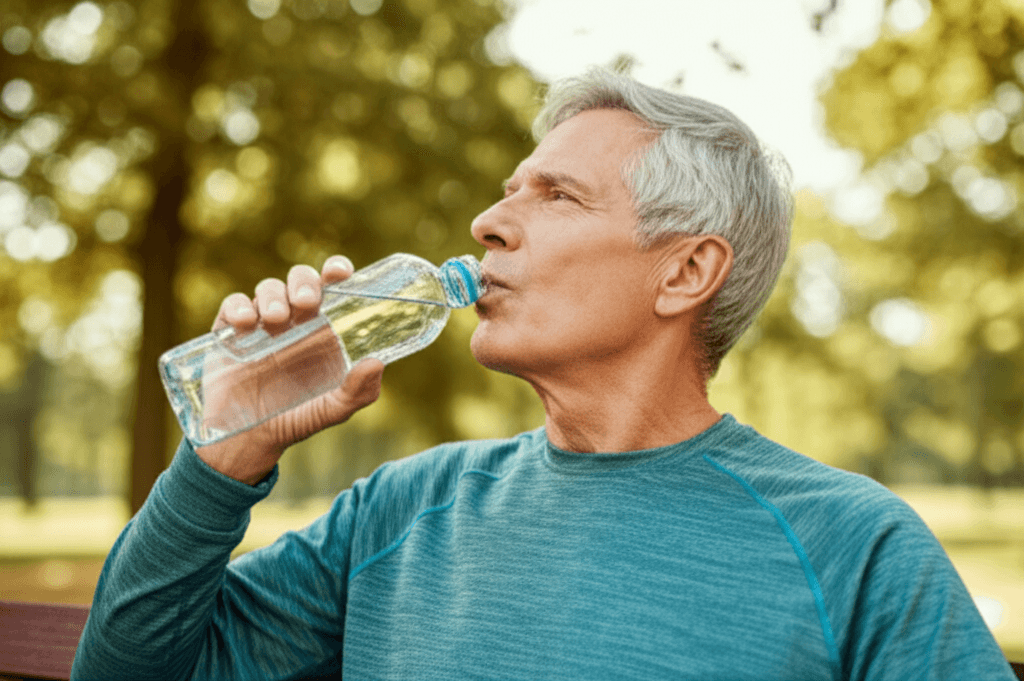
Hydration: The Unsung Hero of Senior Fitness
Adequate hydration is paramount for athletes of all ages, and particularly for older adults. As we age, the sensation of thirst can diminish, making it easier to become dehydrated. Dehydration can impact energy levels, cognitive function, and kidney health. Consuming sufficient fluids, primarily water, throughout the day is essential for metabolic needs, physical activity, and nutrient absorption.
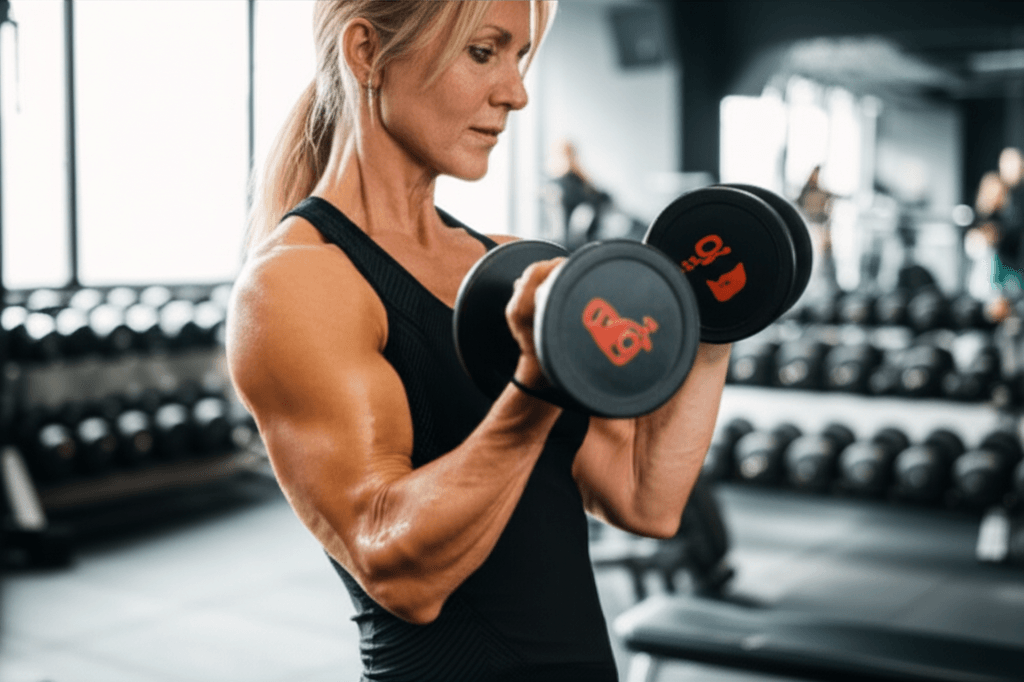
Beyond the Plate: The Indispensable Role of Strength Training
Roshni Devi’s journey vividly demonstrates that nutrition is only one part of the equation; physical activity is equally crucial. Strength training, or resistance exercise, is highly effective in preventing and even reversing sarcopenia. It builds and maintains muscle mass, strengthens bones, improves balance, and can significantly enhance functional movement and overall quality of life in older adults. Research challenges the misconception that weightlifting is too strenuous for seniors, showing that older adults can experience less muscle soreness and greater recovery capacity compared to younger individuals.
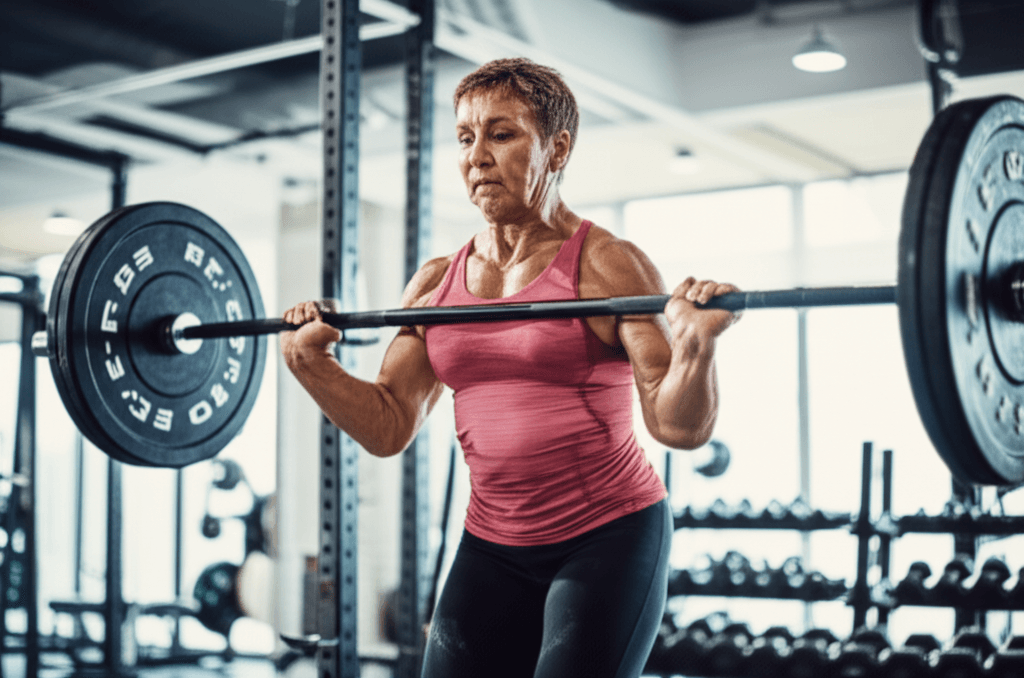
Personalization is Key for Lasting Health
While general guidelines exist, individual nutritional needs can vary based on activity level, health status, and pre-existing conditions. As Roshni Devi’s example shows, a disciplined approach, tailored to one’s body and lifestyle, yields significant results. Consulting with a healthcare professional or a registered dietitian can provide personalized guidance to ensure older adults, especially those pursuing active lifestyles, meet their specific nutritional requirements and continue to thrive.
Roshni Devi, the “Weight Lifter Mummy,” is more than just an inspiring individual; she is a living testament to the power of proactive aging. Her commitment to strength training and a protein-rich vegetarian diet offers a practical blueprint for how prioritizing nutrition and physical activity can empower individuals to remain robust, independent, and vibrant well into their senior years. Her message is clear: the path to staying “fit at 70” is paved with intentional choices, both in and out of the kitchen.


